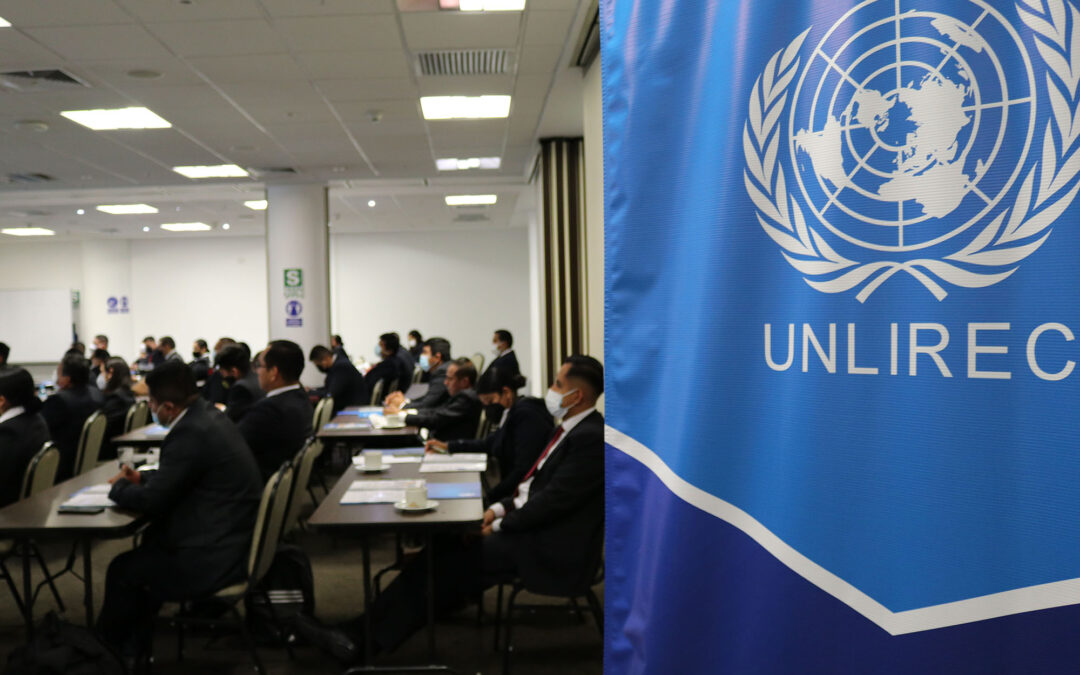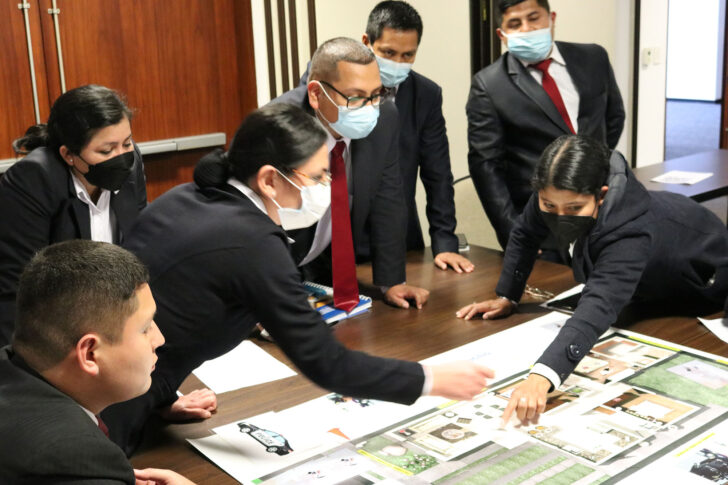On 3 and 4 August 2022, United Nations Regional Centre for Peace, Disarmament and Development in Latin America and the Caribbean (UNLIREC) in partnership with the Ministry of Foreign Affairs and Directorate of Criminal Investigation of the Peruvian National Police (DIRCRI-PNP), held the first in-person edition of its Specialised Course on Firearms Investigations from a Gender Perspective (FIGP).
The course is aimed at sensitising participants on the importance of gender mainstreaming in crimes committed with firearms and strengthen their relevant technical knowledge about scientific methods of criminal investigations, as well as inter-institutional cooperation in these areas.
During the course, General Luis Miguel Gamarra Chavarry, Director of DIRCRI-PNP stressed the importance of developing gender-sensitive criminal investigation skills to solve crimes against women: “We consider it [this training] important because it allows us to examine the crime scene free from stereotypes, free from thoughts opposed to women, and to do an adequate job.” He highlighted the support of UNLIREC in capacity building to provide a better service to society: “This benefits the public because we are able to shed light on these crimes rather than the investigation being left in suspense; instead it allows us to identify the responsibility of individuals and supports the judiciary and the Public Prosecutor’s Office.”
Forty-one investigators and experts from different departments of the DIRCRI participated, including representatives from Ballistics and Forensic Explosives, Criminal Investigation, Criminalistic Inspections, Human Trafficking Investigation Division, Forensic Computer Graphic, among others.
What is FIGP?
The Specialised Course on Firearms Investigations from a Gender Perspective (FIGP) addresses both theoretical and technical aspects in criminal investigations and how gender mainstreaming, as a method of analysis, contributes to drawing conclusions free of stereotypes, based on technical and scientific research.
This was put into practice with an analysis of different cases to reflect how the absence of a gender perspective leads to the violation of rights of the victims and their families.
During the training, it was highlighted that firearms are used to commit different types of violence against women, so not only as a murder weapon, but also as an instrument to threaten, intimidate and coerce.
The importance of the correct handling of the crime scene and of firearms and ammunition as physical evidence, the need for a gender-sensitive investigation of crimes was also emphasised. Recommendations were shared and participants were urged to strengthen the coordination and cooperation between all actors involved in the different stages of the judicial investigation.
This activity concluded the project ´Supporting gender mainstreamed policies, programmes and actions in the fight against small arms trafficking and misuse´ in Latin America and the Caribbean, funded by the European Union.





